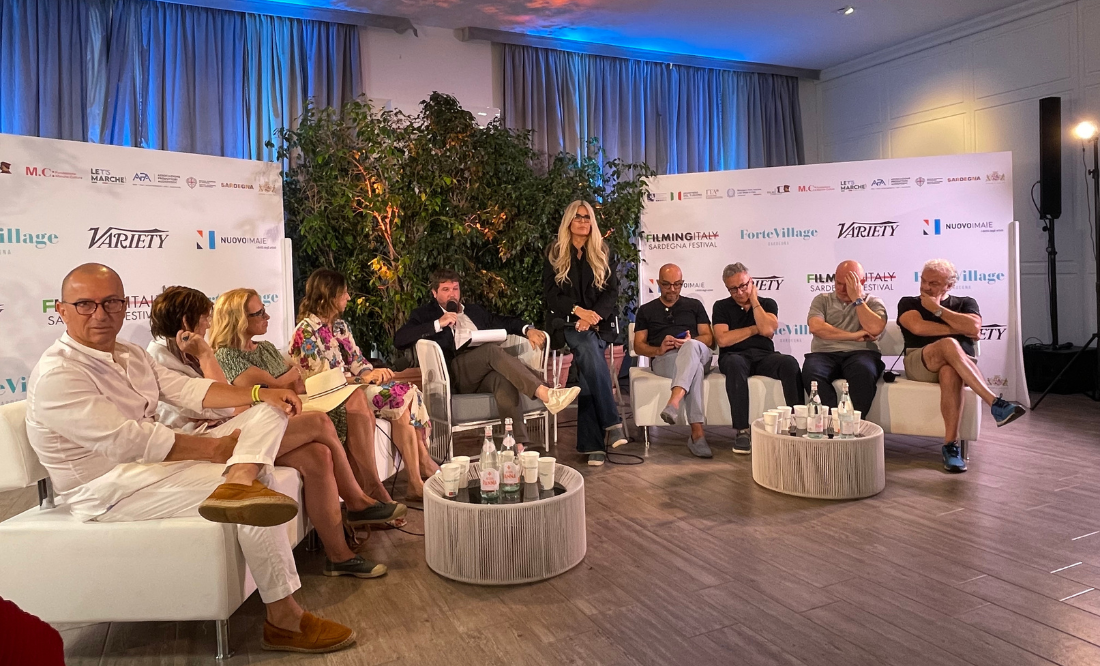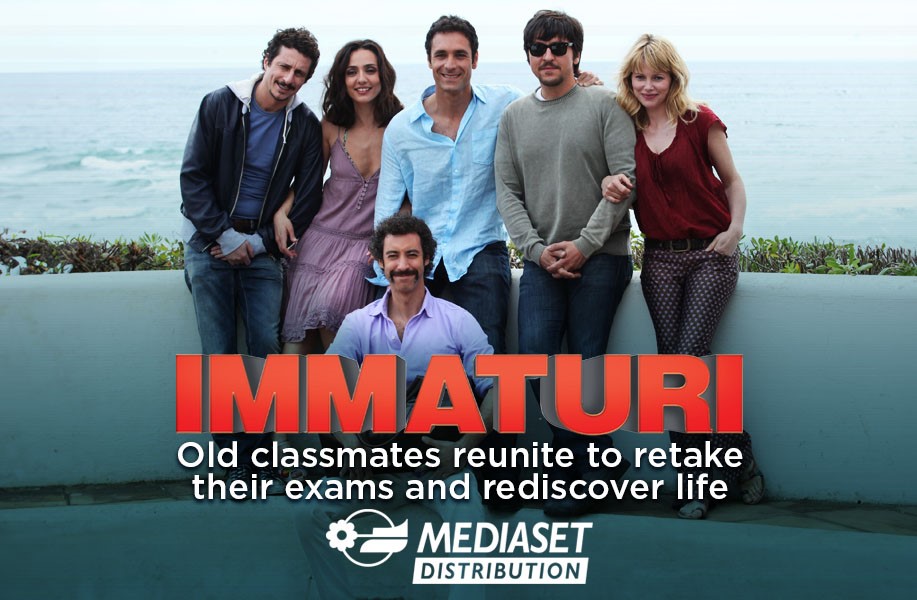Maria Pia Ammirati: “Thinking Only of Italy Would Be a Suicidal Move”
Maria Pia Ammirati underscored a transformative shift in audience expectations over the last two decades. “We can’t think only of Italy when we create a product,” she said. “The Italian public has evolved immensely, especially in the last decade, thanks to the presence of streaming platforms.”
She emphasized that limiting production to domestic expectations would be counterproductive. “It would be suicidal to ignore the international market,” Ammirati declared. “We need to create content that speaks Italian but resonates globally.” She cited data from RaiCom showing that since 2019, foreign sales of Italian titles have increased by more than 50%. “Our stories reflect our cultural identity — and abroad, they love not just our food and fashion, but our culture too.” One recent success she pointed to was Il Conte di Montecristo, a property rooted in strong international appeal.
From Montecristo to Kabul: Fiction as a Bridge Between Markets
Maria Pia Ammirati returned to the conversation to highlight the international trajectory of Italian scripted productions. She pointed to Montecristo as a standout example of a successful international co-production — a project that performed remarkably well both in Italy and abroad. “It’s the proof that we’re no longer making content just for the domestic market,” she said. “We are producing internationally-minded stories.”
In recent years, Rai Fiction has expanded its collaborative framework, frequently co-producing with France and Germany. This, Ammirati noted, is not without challenges. “It’s not easy to sit at a table with extraordinary colleagues who come from different cultures and work with different genres,” she admitted. “But despite those differences, we manage to come together around meaningful projects.”
One such project is Kabul: “We’re taking Kabul to the Italian Global Series Festival” Ammirati announced. “It tells the story of the withdrawal of U.S. and NATO troops from Afghanistan in 2021 — a country torn apart by decades of war. It’s almost a documentary in its intensity.” Kabul reflects a new kind of production model: shared direction, an international cast, English-language filming, and a unified writing team across borders. “It’s not a joke,” Ammirati stressed. “We are actually achieving extraordinary things together.”
DOC and Mare Fuori: Global Success Stories
Italy’s capacity to export high-quality scripted content is further demonstrated by the international success of series like DOC – Nelle tue mani. The medical drama has already been adapted in the United States, with a second season of the remake currently in production. “An Italian series that has been distributed in the U.S., and with such beauty — it's something we should be proud of,” Ammirati said.
Another global success is Mare Fuori (The Sea Beyond), which has been adapted in Spain as Mar Afuera and is also undergoing a new adaptation for Netflix. “These examples prove that Italian content no longer lives only within national borders. We’ve moved beyond being just a local market.”
Giampaolo Letta CEO of Meduasa focused on the dual challenges of company scale and internationalization. “Size matters — it’s the only way to remain competitive against global players in both TV and cinema,” he said. “Italian companies need to strengthen international partnerships, whether within Europe or beyond.”
He argued that while there is considerable international interest in Italian cinema, economic returns remain modest — especially for comedies, which often struggle abroad due to their hyper-localized humor and cultural references. “Our artists — like Checco Zalone or Aldo, Giovanni e Giacomo — are brilliant, but their stories are deeply rooted in local realities.” In contrast, genre films tend to perform better globally. Letta highlighted successful examples involving directors like Giuseppe Tornatore and Paolo Genovese. “Genovese’s Perfect Strangers (Perfetti Sconosciuti) is an exceptional case,” he said, referencing its 43 remakes and sales in over 56 countries. “It worked both as an original film and as a format.”
Maria Pia Ammirati returned to the conversation to highlight the international trajectory of Italian scripted productions. She pointed to Montecristo as a standout example of a successful international co-production — a project that performed remarkably well both in Italy and abroad. “It’s the proof that we’re no longer making content just for the domestic market,” she said. “We are producing internationally-minded stories.”
In recent years, Rai Fiction has expanded its collaborative framework, frequently co-producing with France and Germany. This, Ammirati noted, is not without challenges. “It’s not easy to sit at a table with extraordinary colleagues who come from different cultures and work with different genres,” she admitted. “But despite those differences, we manage to come together around meaningful projects.”
One such project is Kabul: “We’re taking Kabul to the Italian Global Series Festival” Ammirati announced. “It tells the story of the withdrawal of U.S. and NATO troops from Afghanistan in 2021 — a country torn apart by decades of war. It’s almost a documentary in its intensity.” Kabul reflects a new kind of production model: shared direction, an international cast, English-language filming, and a unified writing team across borders. “It’s not a joke,” Ammirati stressed. “We are actually achieving extraordinary things together.”
DOC and Mare Fuori: Global Success Stories
Italy’s capacity to export high-quality scripted content is further demonstrated by the international success of series like DOC – Nelle tue mani. The medical drama has already been adapted in the United States, with a second season of the remake currently in production. “An Italian series that has been distributed in the U.S., and with such beauty — it's something we should be proud of,” Ammirati said.
Another global success is Mare Fuori (The Sea Beyond), which has been adapted in Spain as Mar Afuera and is also undergoing a new adaptation for Netflix. “These examples prove that Italian content no longer lives only within national borders. We’ve moved beyond being just a local market.”
Giampaolo Letta CEO of Meduasa focused on the dual challenges of company scale and internationalization. “Size matters — it’s the only way to remain competitive against global players in both TV and cinema,” he said. “Italian companies need to strengthen international partnerships, whether within Europe or beyond.”
He argued that while there is considerable international interest in Italian cinema, economic returns remain modest — especially for comedies, which often struggle abroad due to their hyper-localized humor and cultural references. “Our artists — like Checco Zalone or Aldo, Giovanni e Giacomo — are brilliant, but their stories are deeply rooted in local realities.” In contrast, genre films tend to perform better globally. Letta highlighted successful examples involving directors like Giuseppe Tornatore and Paolo Genovese. “Genovese’s Perfect Strangers (Perfetti Sconosciuti) is an exceptional case,” he said, referencing its 43 remakes and sales in over 56 countries. “It worked both as an original film and as a format.”
The conclusions of this interesting panel were made by Paolo del Brocco, CEO Rai Cinema who made a distinction between commercial cinema, which often finds its outlet on TV or platforms, and cinema for theatrical release, which tends to be more artistic or festival-oriented. “We must be clear: when we talk about exporting cinema, we must separate these two worlds.” He acknowledged that Italian films — especially comedies — rarely break out internationally. “Our films don’t travel much,” he admitted, “but they hold immense cultural value.” The titles that do succeed abroad, he noted, are typically festival films. “They gain visibility, they are sold in many countries, but their economic return is still limited.”
Del Brocco also challenged the idea that genre alone is the main issue. “Some genres are no longer even welcome on platforms,” he noted. “And many films aren't made for theatrical audiences anymore — they go straight to streaming.” Still, he praised initiatives like Filming Italy and Cinecittà, particularly under the leadership of Nicola Maccanico, for their efforts in promoting Italian films internationally.
The French Model and the Oscar Challenge
A recurring theme was Italy’s need to adopt a more strategic approach, similar to France’s centralized support system for its national cinema. Del Brocco expressed a desire for Italy to create stronger support structures for Oscar campaigns and international promotion. “When Sorrentino won the Oscar, everything changed,” he recalled, “but we still lack a sustainable, systemic method to promote Italian films abroad.”
He noted the difficulty in competing with U.S. Oscar campaigns, which can command budgets in the tens of millions. “We rely on individual efforts, personal relationships, and limited budgets,” he said. “We need structural change.”
A Missed Opportunity: Exporting Italian Documentaries
Del Brocco closed with a pointed observation: Italy is sitting on a goldmine in the form of documentaries. “The BBC built a global empire exporting documentaries. We have all the ingredients — landscapes, history, brands — but we’re not doing enough.” He lamented that Italy lacks the infrastructure and strategy to sell big-budget, internationally appealing documentaries, beyond niche or auteur-focused formats.
Conclusion: A Call for a Global Strategy
The panel revealed both the potential and the paradoxes of Italy’s position in global film distribution. While international interest in Italian stories remains high, especially in genre and festival circuits, key obstacles persist — from limited budgets and fragmented strategies to the cultural specificity of comedy.
The solution, as all the speakers emphasized, lies in embracing a more structured, export-oriented vision: one that empowers producers, leverages international partnerships, invests in strategic campaigns, and recognizes the intrinsic value of Italian storytelling — not only at home, but across the world.
Del Brocco also challenged the idea that genre alone is the main issue. “Some genres are no longer even welcome on platforms,” he noted. “And many films aren't made for theatrical audiences anymore — they go straight to streaming.” Still, he praised initiatives like Filming Italy and Cinecittà, particularly under the leadership of Nicola Maccanico, for their efforts in promoting Italian films internationally.
The French Model and the Oscar Challenge
A recurring theme was Italy’s need to adopt a more strategic approach, similar to France’s centralized support system for its national cinema. Del Brocco expressed a desire for Italy to create stronger support structures for Oscar campaigns and international promotion. “When Sorrentino won the Oscar, everything changed,” he recalled, “but we still lack a sustainable, systemic method to promote Italian films abroad.”
He noted the difficulty in competing with U.S. Oscar campaigns, which can command budgets in the tens of millions. “We rely on individual efforts, personal relationships, and limited budgets,” he said. “We need structural change.”
A Missed Opportunity: Exporting Italian Documentaries
Del Brocco closed with a pointed observation: Italy is sitting on a goldmine in the form of documentaries. “The BBC built a global empire exporting documentaries. We have all the ingredients — landscapes, history, brands — but we’re not doing enough.” He lamented that Italy lacks the infrastructure and strategy to sell big-budget, internationally appealing documentaries, beyond niche or auteur-focused formats.
Conclusion: A Call for a Global Strategy
The panel revealed both the potential and the paradoxes of Italy’s position in global film distribution. While international interest in Italian stories remains high, especially in genre and festival circuits, key obstacles persist — from limited budgets and fragmented strategies to the cultural specificity of comedy.
The solution, as all the speakers emphasized, lies in embracing a more structured, export-oriented vision: one that empowers producers, leverages international partnerships, invests in strategic campaigns, and recognizes the intrinsic value of Italian storytelling — not only at home, but across the world.











